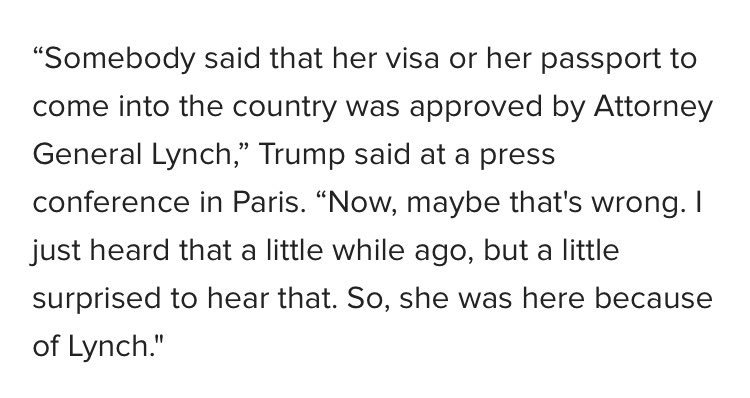Trump Jr.’s Russia meeting sure sounds like a Russian intelligence operation
By Rolf Mowatt-Larssen July 14 at 1:48 PM
Rolf Mowatt-Larssen is the director of the Intelligence and Defense Project at Harvard’s Belfer Center. He served for three years as director of intelligence and counterintelligence at the Department of Energy and for 23 years as a CIA intelligence officer in domestic and international posts.
Donald Trump Jr. is seeking to write off as a nonevent his meeting last year with a Russian lawyer who was said to have damaging information about Hillary Clinton. “It was such a nothing,” he told Fox News’s Sean Hannity on Tuesday. “There was nothing to tell.”
But everything we know about the meeting — from whom it involved to how it was set up to how it unfolded — is in line with what intelligence analysts would expect an overture in a Russian influence operation to look like. It bears all the hallmarks of a professionally planned, carefully orchestrated intelligence soft pitch designed to gauge receptivity, while leaving room for plausible deniability in case the approach is rejected. And the Trump campaign’s willingness to take the meeting — and, more important, its failure to report the episode to U.S. authorities — may have been exactly the green light Russia was looking for to launch a more aggressive phase of intervention in the U.S. election campaign.
Let’s start with the interlocutor: Russian lawyer Natalia Veselnitskaya. When arranging the meeting, music promoter and Trump family acquaintance Rob Goldstone referred to a “Russian government attorney.” Both Veselnitskaya and the Kremlin have subsequently denied any association. What’s beyond dispute is that she has lobbied for the United States to repeal Magnitsky Act sanctions against Russian officials, that she regularly represents the interests of the Moscow regional government and that her clients include the vice president of state-owned Russian Railways.
My read, as someone who has been part of the U.S. intelligence community for more than four decades, is that Veselnitskaya is probably too well-connected to have independently initiated such a high-level and sensitive encounter. If she had, her use of known Trump and Kremlin associates (Aras and Emin Agalarov) to help make introductions and the suggestion, in Goldstone’s account, that she wanted to share “official documents and information” as “part of Russia and its government’s support” for Trump could have gotten her into significant trouble. Her efforts to meet Trump associates would have surely come to the attention of Russian authorities at some point, given Russian government email monitoring and other means of surveillance. The Kremlin would look harshly on someone going rogue in a manner that would surely damage ongoing Russian intelligence operational efforts related to the U.S. presidential campaign.
A better explanation is that Veselnitskaya is far enough removed from Moscow’s halls of power to make her a good fit as an intermediary in an intelligence operation — as a “cut-out” with limited knowledge of the larger scheme and as an “access agent” sent to assess and test a high-priority target’s interest in cooperation. She may have had her own agenda going into the meeting: to lobby against the Magnitsky Act, which happens to impact some of her clients. But her agenda dovetailed with Kremlin interests — and it would have added another layer of plausible deniability. Russian intelligence practice is to co-opt such a person. News Friday that she was accompanied by Rinat Akhmetshin, a Russian-American lobbyist who is reportedly suspected of, though denies, having ties to Russian intelligence, further bolsters this reading.
.......
https://www.washingtonpost.com/outl...2d00a47778f_story.html?utm_term=.ef39496fd05a


